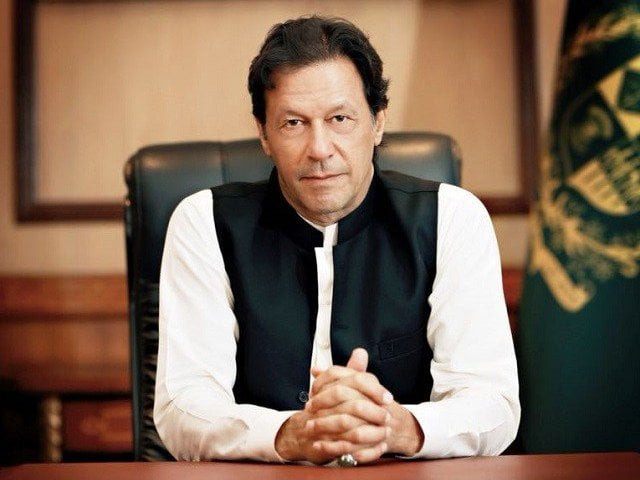China hails PM Imran’s support for CPEC projects
UNSC members not in favour of forcing US's draft resolution on JeM's Masood Azhar, says Beijing

Prime Minister Imran Khan. PHOTO: PTI
"We appreciate the prime minister's attendance at the ceremony and we have every confidence in the prospects of our practical cooperation," Chinese foreign ministry's spokesperson Geng Shuang told APP during a regular media briefing.
He expressed confidence that the airport after its construction would not only help benefit the two countries but also contribute to the development of the region and the world. The spokesperson said China and Pakistan under the Belt and Road framework had been carrying out a series of mutually beneficial projects.
“The construction of the new airport at Gwadar was just one such example,” Geng said. The $230 million project funded by the Chinese government under the China-Pakistan Economic Corridor (CPEC) would be completed in three years in Gurandani area, 26km northeast of Gwadar city.
The new airport would be capable of handling a combination of ATR 72, Airbus A-380, Boeing B-737 and Boeing B-747 for domestic and international routes. Covering an area of 18 square kilometres, the new airport would be the second largest in Pakistan and link the fast-rising Gwadar port city with the rest of the world.
Responding to a question, Geng said the US was setting a bad example by forcing a draft resolution on the sanctions issue at the United Nations Security Council (UNSC), and cautioned that any such move would not be conducive to peace and security in South Asia.
"The US behaviour is not in consistence with the rules and procedures of the UNSC, its customs and practice. It is setting a bad example that will only complicate the issue and it is not conducive to peace and stability in South Asia," Geng said.
China, he said, had repeatedly said that its position on the issue of the designation of Maulana Masood Azhar was consistent and clear. "We hope that various parties will meet each other the halfway and continue to properly resolve this issue under the 1267 Committee framework," he added.
The spokesperson said that last Friday, the UNSC members exchanged views on the US proposed draft resolution and majority believed that efforts should be made under the 1267 Committee framework and to resolve the issue through dialogue and consultations. "They are not in favour of forcing the draft resolution."
He said that China had been working with various parties and was making progress and the US side was aware of the circumstances but it insisted on pushing the Security Council to adopt the draft resolution and that behaviour could not be justified.
When asked about the progress made by China on the listing issue, he said since the application for designation was proposed at the committee, China had been in close communication with various parties. "As I said, we have been working with various parties and have made some positive progress and the US knows that very well," he added.
He said the Chinese side believed that under the current circumstances, forcing a draft resolution under the UNSC was not a constructive move. According to Geng, the US was showing haste on the listing issue by bypassing the set procedures to benefit the Indian ruling party in the forthcoming general elections in that country. "As I have just said, the US behaviour is not in consistence with the rules and procedures of the UN Security Council and its customs and practice."



















COMMENTS
Comments are moderated and generally will be posted if they are on-topic and not abusive.
For more information, please see our Comments FAQ